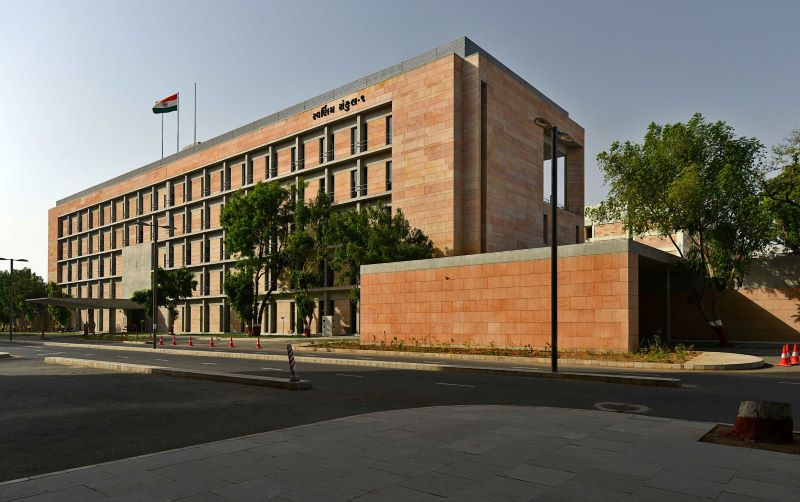Gujarat govt finalizes rules for merging Narmada rehabilitation settlements with Gram Panchayats
July 14, 2025
Gandhinagar: The Gujarat government today announced that it has finalized the regulations for merging and transferring the resettlement colonies under the Sardar Sarovar Rehabilitation Agency to their original villages.
As per the official release, Chief Minister Bhupendra Patel has approved the procedural framework for integrating the Narmada colonies with local gram panchayats. According to the decision, a total of 127 Narmada resettlement colonies across 26 talukas in the districts of Ahmedabad Rural, Vadodara, Bharuch, Kheda, Panchmahal, Narmada, Chhota Udepur, and Mahisagar will now be merged with their nearby villages.
The procedure, presented by the state’s Panchayat, Rural Housing, and Rural Development Department before the Chief Minister, ensures that civic amenities in these colonies—such as drinking water sources, approach roads connecting the colony to main roads, internal roads, street lighting, and rainwater drainage—will be maintained and periodically repaired by the respective gram panchayats.
With this state-approved framework, the handover process is expected to be completed within the next two months. Furthermore, the integration will allow all resident families in these colonies to easily access government schemes and benefits provided through the gram panchayats, leading to improvements in their quality of life and access to essential services.
Chief Minister Bhupendra Patel has also clarified that ownership of unallocated plots within these colonies will continue to rest with the Sardar Sarovar Rehabilitation Agency.
All records related to the Narmada colonies must be handed over by the agency to the respective gram panchayats. Additionally, responsibilities related to voting rights and representation of residents will be handled by the panchayats in accordance with prevailing laws. The agency will also transfer facilities such as schools, health centres, and anganwadis within these colonies to the relevant government departments.
Open plots and common areas in the colonies may be utilized by gram panchayats to develop public amenities for residents.
Following property assessments, taxes and levies under the Gujarat Panchayat Act, 1993, and associated rules will be collected by the respective gram panchayats. After the handover, any grievances related to civic amenities in the colonies will be addressed by the relevant gram panchayat.
The state government has also resolved that these regulations will apply to any remaining Narmada colonies under the Sardar Sarovar Rehabilitation Agency that are merged with gram panchayats in the future. A formal resolution regarding this procedure, as directed by Chief Minister Bhupendra Patel, has been issued by the Panchayat, Rural Housing, and Rural Development Department. Deshgujarat
Recent Stories
- India vs SL Match
- Free rides on AMTS buses for three days during Diwali
- 100 years of service to nation was our duty, so no celebration is needed: RSS Chief
- Commonwealth Sport Board Recommends Ahmedabad as Host City for 2030 Commonwealth Games
- Gujarat CM to visit Mumbai for listing of SMC's green municipal bonds on NSE
